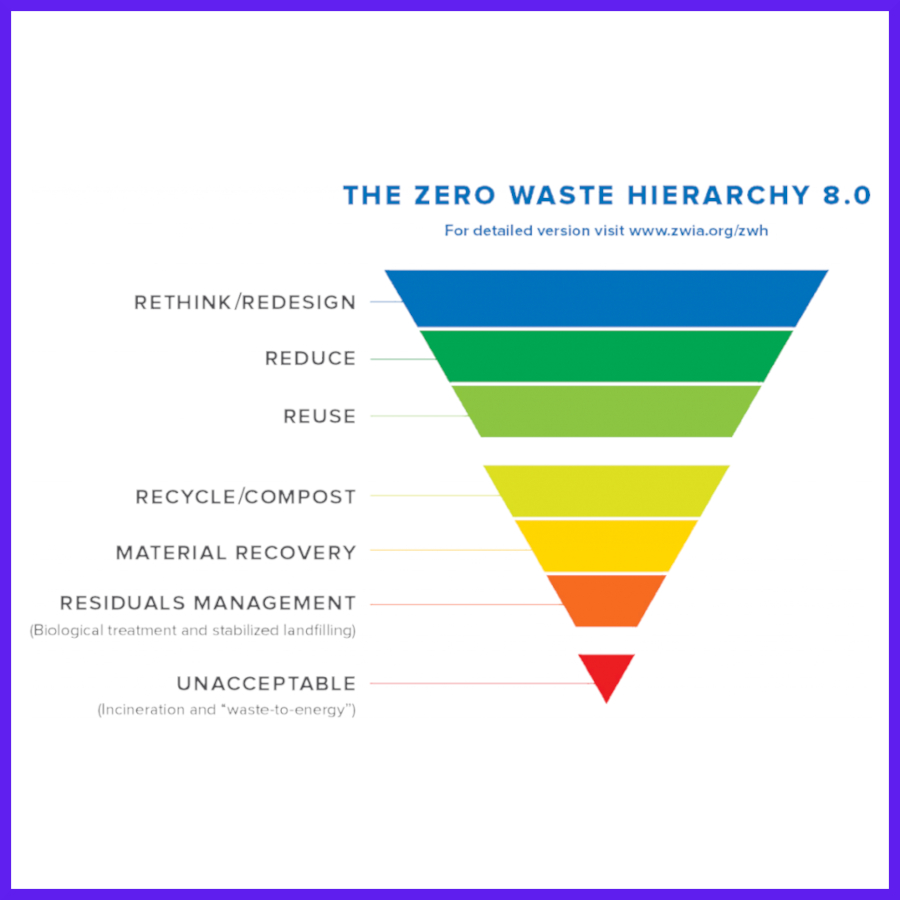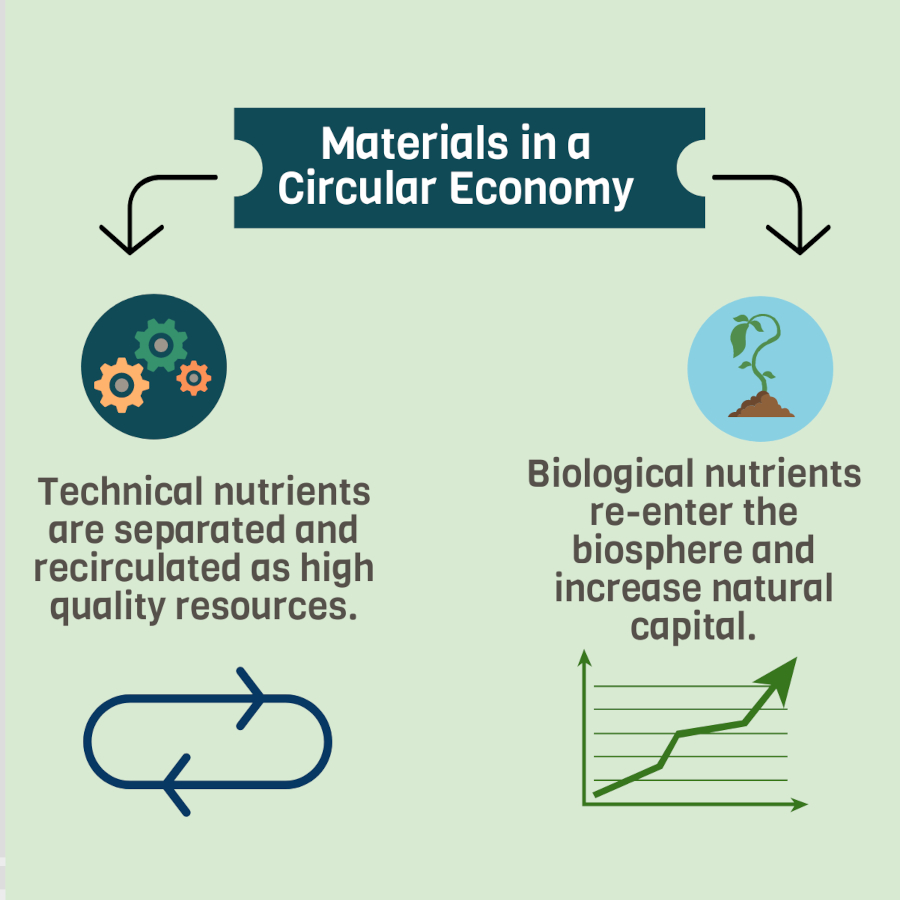Zero Waste is a philosophy and a goal. Only by “closing the loop” can we hope to develop a sustainable economy. The idea is to reduce consumption as much as possible by using design-for-environment in all products and their packaging, and to make all products and packaging recyclable.
Achieving Zero Waste depends on designing products and industrial processes so that their components can be dismantled, repaired, reused and/or recycled. Zero Waste means linking communities, businesses, and industries so that one’s waste becomes another’s feedstock. It means preventing pollution at its source. It means new local jobs in communities throughout British Columbia.
Image from the Zero Waste International Alliance licensed under Creative Commons

